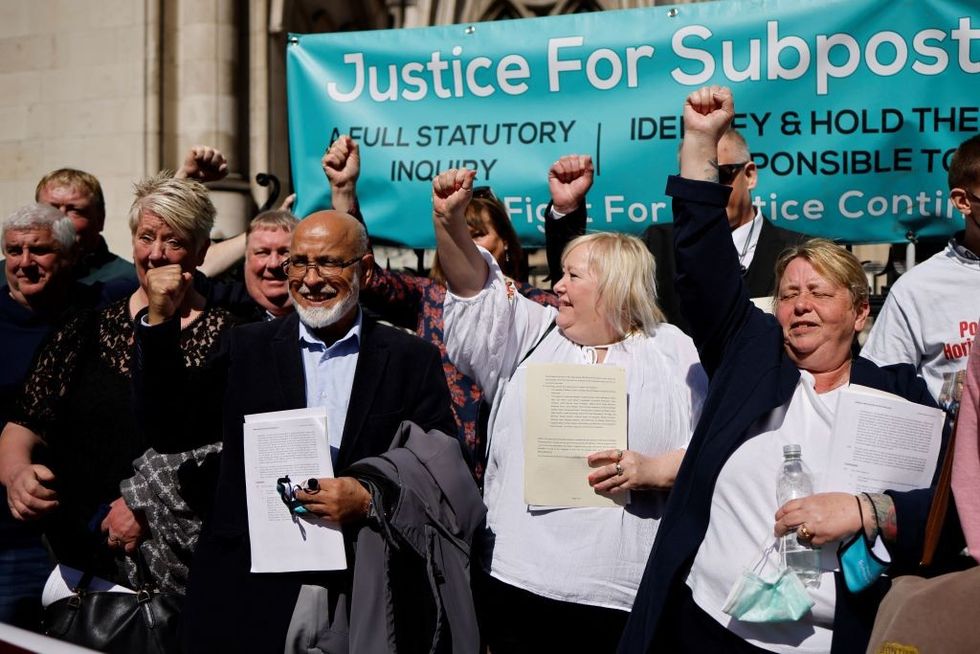Journalist Nick Wallis has stood by the victims of the Post Office miscarriage of justice for nearly 15 years. Now, as the Inquiry nears its end, he shares his thoughts on the saga – and the guilty
The Post Office scandal is the greatest miscarriage of justice in British legal history, with nearly a thousand wrongful prosecutions, and a massive inquiry is ongoing.
Post Office Ltd (POL) relied on “evidence” from a fatally-flawed Horizon IT system that made it look as if sub postmasters were stealing money from their businesses. And was inclined to believe whatever the Fujitsu programmers said. POL began to prosecute postmasters from early on this century, shortly after Horizon was adopted.
Later, as more and more previously law-abiding sub postmasters turned, without or planning, to a life of hopeless crime – they were contractually responsible for financial shortfalls in their branches, so stealing was nonsensical – patterns emerged that would throw into question the robustness and integrity of Horizon and Fujitsu. But POL, committed to its shiny new IT project, ignored the protests and carried on, prosecution-happy, even after it had lost more than a dozen cases – losses which it kept very quiet about in future years.
All the prosecutions were brought by POL itself rather than the Crown Prosecution Service, and public and legal scrutiny as a result was very limited. Sub postmasters who found themselves in the dock were each lied to by POL that they were the only ones to have lost money; then bullied and blackmailed into pleading guilty, repaying “stolen” sums, or resigning. Many sub postmasters, assured that a guilty plea or a “repayment” would see the end of the matter, found themselves thrown into prison anyway – people such as Seema Misra, who was even pregnant at the time.
Accused postmasters often found themselves vilified within the communities that had come to trust them, and many were subject to racial abuse. POL debt collectors, working on commission, hounded and doorstepped the accused, who began to experience ill-health, family break-ups and mental breakdowns, even suicides.
The sub postmasters’ union was no help, because it was being financed by POL and was interested only in smoothing the way between itself and its paymaster. It merely whispered what the POL advised: give yourself up, computers don’t lie, just come clean.
At one point a slight nervousness entered POL and it hired two forensic accountants – Ron Warmington and Ian Henderson of Second Sight – to produce a report, which made uncomfortable reading in that it highlighted instances where Horizon had plainly been untrustworthy, implying that prosecutions might be unsafe. There was no Third Sight: Ron and Ed were undermined and then sacked.
POL discomfort (or growing terror) was compounded when Simon Clarke, a barrister working for a law firm retained by the organisation, looked into the matter and discovered that the Fujitsu expert witness – Gareth Jenkins – whose testimony had led to the conviction and imprisonment of dozens of luckless sub postmasters, had lied and obfuscated on many matters under oath in the witness box, rendering every conviction unsafe. This was the notorious “Clarke advice”, which POL promptly made vanish until 2020, when it was finally pried from POL’s grasp.
The prosecutions continued for many years and the conspiracy grew deeper with each sub postmaster’s false conviction.
By now, of course, a very bad but limited mistake of over-reliance on experts and technology starting two decades earlier had metastasized into the greatest legal scandal of the century, with literally hundreds of sub postmasters prosecuted, sacked, bankrupted and ruined.
This was partly for the sake of keeping POL – which had been seeking £1.5 billion in new funding from the government – looking competent and professional. Such a scandal breaking might have proven an existential matter for POL. But lethal blowback is now searing its way through the ranks of the Executive great and good (and to an extent, government) as the Post Office Inquiry goes on, wrecking reputations and placing many – one hopes – in the cold blast of serious legal jeopardy.
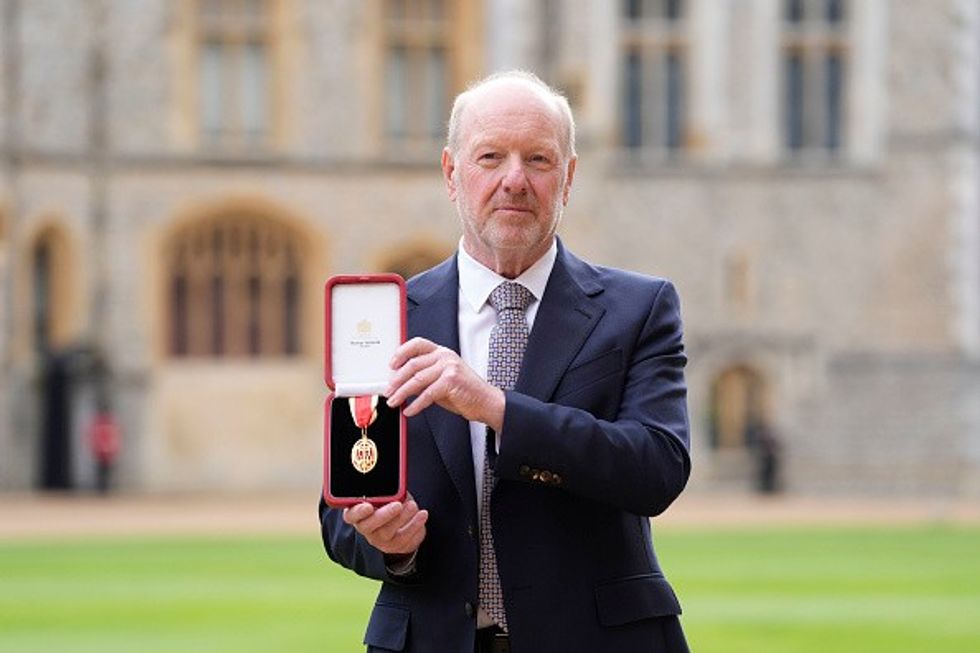
The mood in the country turned decisively against POL after the drama, Mr Bates vs The Post Office, was broadcast on four consecutive days from 1 January 2024. To have the entire saga laid out in a manner the public could grasp – and become outraged over – seemed almost like a miracle.
But from very early on, one man had been keeping the flame alive and doing the serious footwork of investigating and documenting all that was happening. That was Nick Wallis, an ex-BBC journalist, now a freelancer, whose Post Office Scandal website relentlessly exposed all the POL goings on, all the obfuscation, lies and evasions, the injustices and contradictions, the rumours and scandals. For years, Nick kept plugging away, always modestly, always making it clear that he was supporting the victims, the suffering sub postmasters.
In the end he wrote a book about it, The Great Post Office Scandal – in a sense a book that remains very much unfinished as we approach the culmination of the Inquiry and await the findings of its Chair, Sir Wyn Williams; and then subsequently the deliberations of the police and Crown Prosecution Service, to see whether a measure of justice will finally be meted out to the conspirators.
Asian Trader recently spoke to Nick to get his personal view about all that has gone on, and to gain an understanding of the inner workings of this greatest scandal.
Story of a scandal
“I've been following the story since 2010, watching it develop, reporting on it for various outlets, mainly the BBC,” says Nick and explains that it was only after a Court of Appeal judgment in 2021 that the government finally bowed to public pressure and agreed to make the inquiry statutory, “at which point we all knew that that would mean there was at least a possibility that we would start to hear some answers”.
Nick has been in the Inquiry hall at Aldgate House in London as often as possible, live-tweeting, for a process that has been ongoing now for over a year.
"I think one of the best things that happened to the inquiry,” Nick says, "was starting it with the human impact hearing, where you had a parade of downtrodden but honest people who had an extraordinary integrity, explaining step by step, exactly what the Post Office did to them.
“Just one or two of these stories should outrage anyone, but there were hundreds. I mean, dozens of people gave live oral evidence, and then there were many, many more witness statements that were given to the inquiry. And I think for the entire inquiry – the Secretariat, the team of barristers, the Chair and his facilitators – it focussed them on getting to the truth of what happened, and they have carried that spirit.”
The POL and Fujitsu and legal people who did have something to hide and did have to justify appalling decisions “didn't come across so well because they were essentially found out by the evidence”.
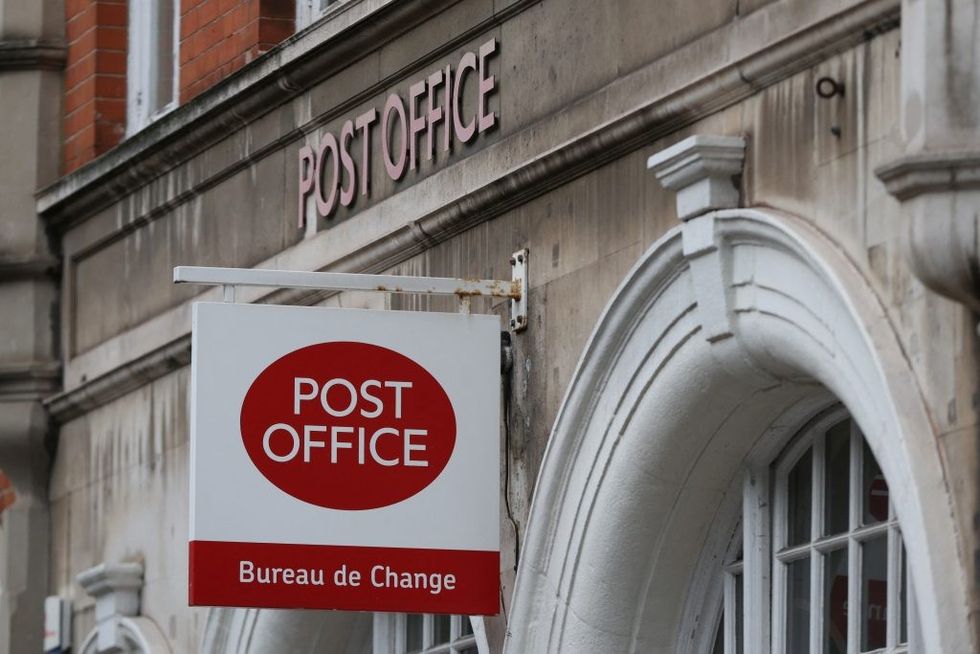
I suggest that there were two exposures, one of the Establishment and its complacency and self-interest. And there was the exposure of what we've come to see is “professionalism” and all the ills that it can foster within an organization.
“What the scandal exposed is the absolute dereliction of duty by so many different sectors and professions and industries,” says Nick. “The corporate governance of the Post Office was negligent. The Post Office executive withheld information from the Board. The Board was not giving the correct information to the shareholder executive or the government department. The shareholder executive wasn't analysing the data that they were getting or asking the relevant questions. They were, in turn, misinforming the ministers, who again, knew they were sitting on a huge problem at times, but failed to apply themselves properly to investigate. And on top of that were the consistent failures of the legal profession to do their duty with regard to the courts and justice, rather than their own naked self-interest.”
Put like that, it seems pretty damning.
Not Rumpole of the Bailey
The legal profession – with honourable exceptions, such as Lord Arbuthnot and the excellent team of backs and lawyers who have conducted the questioning at the Inquiry – have not been morally impressive.
“The Post Office lawyers appear to have been characterized largely by – I would say incompetence just about shades out malice. And utter indifference, or in fact scorn for the sub postmasters, who were the lifeblood of their organization,” says Nick. “A lot of the litigators acting for the Post Office’s external organizations were particularly gruesome, and the barristers that they employed.”
At one point the POL on advice of its legal team, tried to get a judge who had found against them in an earlier hearing, the excellent and technically knowledgeable Mr Justice Fraser, sacked (“recused”) so that he could no longer adjudicate on the actions regarding the sub postmasters. This backfired very badly on POL.
“It’s a perfect example of lawyers who can come in, get paid an awful lot of money to throw their weight and opinions around, with in most circumstances absolutely no skin in the game. They got caught out because this was such a big scandal. It is the class of person, at the very highest levels of the legal profession and the establishment, who could not give a monkey’s about the truth of what was happening. And we saw this with plenty of the other lawyers,” Nick concludes with justifiable contempt.
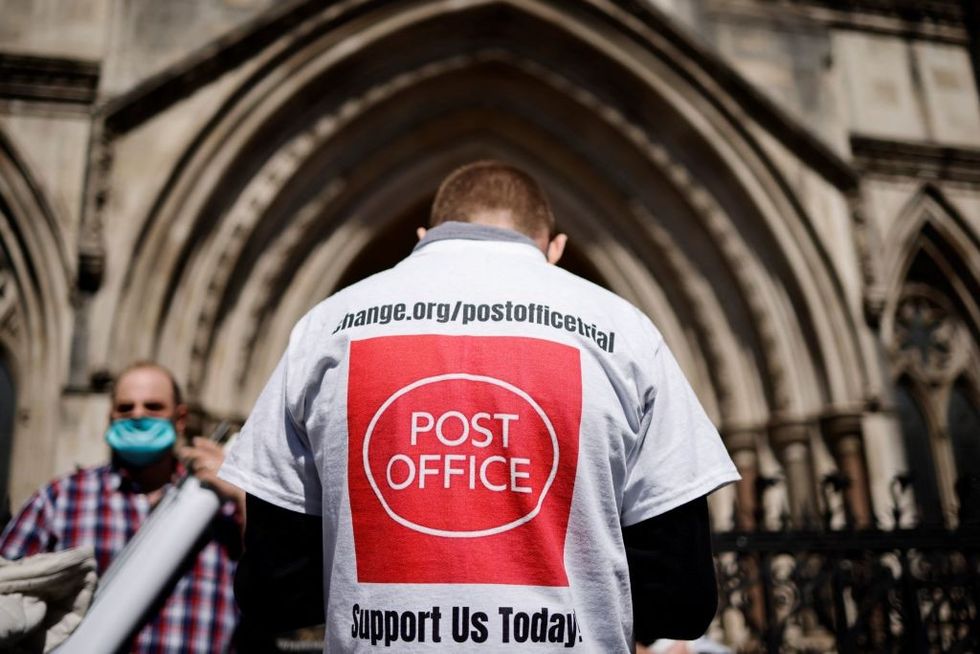
I say that, in all this time, nobody at POL wondered about why an entire class of person – sub postmasters – would decide to become criminal, all in the same way, and all with so little chance of profiting from it.
“It's purely cultural,” he answers. “The development of the Post Office and the admission of sub postmasters into the ranks of the Post Office was predicated with a class loathing, which resented their existence from the very start and saw them all as potential risks to the business, potential thieves. When discrepancies were supposedly highlighted by the Horizon IT system, they took the assurances from Fujitsu that there was nothing wrong it and were able to reinforce their prejudices against sub postmasters, by assuming their guilt. It’s culture, and culture trumps everything; culture even trumps the law.
“If you have bad culture in the legal profession, or in the corporate governance environment, or in a political, or governmental environment, that will manifest itself in injustice.”
Very many sub postmasters (and of course sub postmistresses) are of South Asian origin, and I ask Nick whether he believes racism and prejudice played a part in the prosecutions. I quote a witness testimony from a Fujitsu call-centre employee, where distressed sub postmasters would call when they saw something wrong in their accounts.
The testimony recalled how a cry would go up: “We’ve got another Patel!” – to indicate another “crook” had surfaced. There were classifications for “Negroid” in the Post Office HR bureaucracy. What was going on there?
“I had a theory that the Post Office was indiscriminate in who it prosecuted,” replies Nick. “I think the racial classification codes were shocking and appalling. The fact that the Post Office had not updated them from when they were grandfathered into the organization, from the same racist Metropolitan Police identification codes from the late 1970s, speaks volumes about their incompetence.”
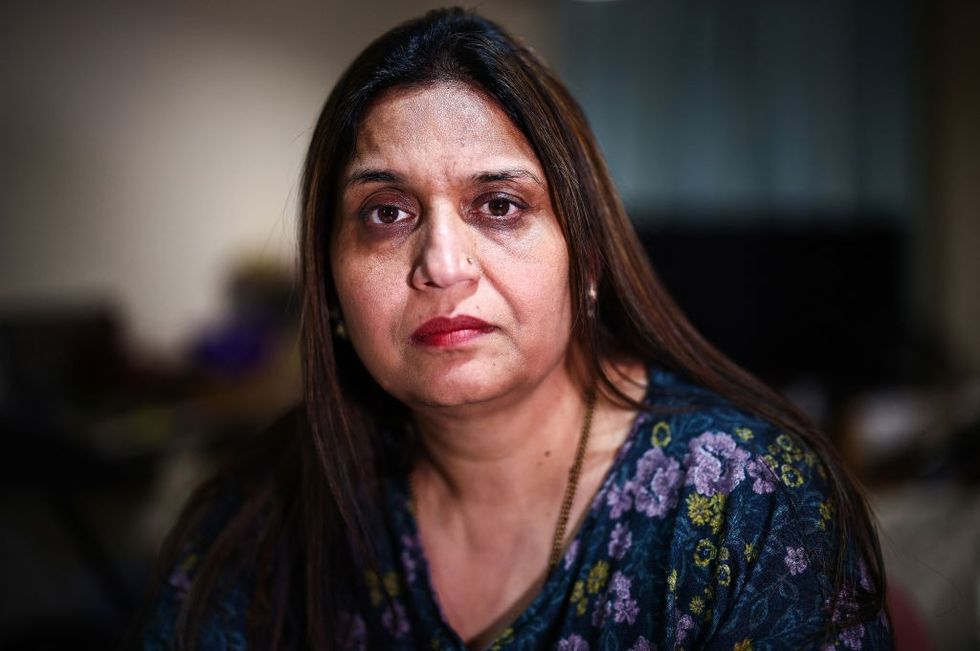
And the ex-coppers they employed to go after the sub postmasters.
“What I do think is particularly interesting, is when those non-white sub postmasters enter the criminal justice system. You've got a cohort of people who've never committed any crimes, because you can't become a sub postmaster if you haven't got a spotless record. Then, when you compare their sentences and the way they were treated by the criminal courts with those of their white counterparts, they seem to get massively disproportionate sentences for their first offense.”
So, it’s in the system rather than personal?
"A white sub postmaster might escape jail,” explains Nick. “A non-white sub postmaster gets a custodial sentence. A white sub postmaster gets a custodial sentence. A non-white one gets a much harsher and longer one. There is now a very interesting cohort of people to be studied because they don't have any previous offending, and therefore you can conceivably compare like-with-like.
Nick has been trying for some time now to get the data out of POL and then the government and has been working with Professor Richard Moorhead at the University of Essex to try to extract that data, but he says, “It’s been like pulling teeth. It's been glacial.”
Birth of a crime
When, I ask, does Nick believe the prosecutions tip over from being a screw-up to being an actual criminal conspiracy?
“Second Sight went in, and after a year, produced an interim report which suggested that there were two known faults with Horizon. One of the external prosecuting barristers saw this report, and within days wrote what became known as the first Clarke advice.
“That was an explosive document, it was an unexploded bomb that had just been handed to the Post Office. Its most senior lawyer read it and did not pass it on to the chief executive or the Post Office Board.
“What we still do not know is how much of the contents of that advice was communicated to the Post Office chief executive and the Post Office Board. But the Post Office CEO, Paula Vennels, wondered whether they should do a proper investigation of all their prosecutions, and she was shut down by their Head of Communications, Mark Davies, who said no, it would create a massive story, and isn't worth it.”
That meant a chain of events was set in motion which “essentially led to them being patted on the back by the various people they were paying to pat them on the back and tell them that that they didn't have a problem.”
Nick says, “That was the point when this went from appalling, terrible, inept, malicious, indifferent cock-up to a conspiracy to pervert the course of justice.”
What next?
Phase Seven of the PO Inquiry his now in session – that's the That's the recommendations and reflections section that will eventually recommend future changes in POL (and hopefully more widely) to ensure nothing like this ever happens again.
But what about punishment for the wrongdoers, now we can pretty much see what happened and who did what in POL and Fujitsu and in various law firms.? Nick lays out how this world of government and big organisations works. Why did the endless ministers responsible apparently never do very much to find out what was going on?
“Information was reaching ministers through non-official means, and they were doing what they could against a machine that was determined to repel any kind of substantive exercise in raising the bonnet or lifting up the rock, and so consistently failed to uncover the problem. There was a vested interest in keeping the problem covered up.”
The system again.
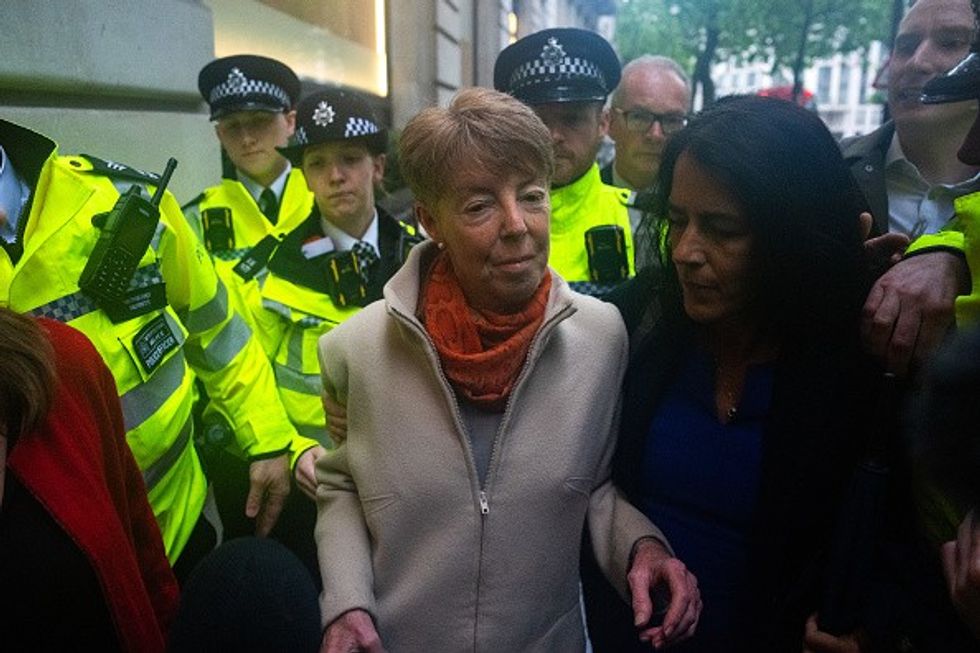
“Too many people had too much to lose by saying, Okay, let's, let's do a root and branch investigation into what has gone wrong here. They knew that if they kept digging, what they found could be existential for the government and the Post Office. But when it comes to miscarriages of justice, that's the point at which you should say, I don't care if this loses me my job. I don't care if the whole cabinet has to resign. I don't care if my career prospects are blighted going forward and forever stained by a crisis that will have my name attached to it simply because I did something about it.”
Is it also that beyond this point that if I don't say something, I enter the realm of legal liability? I ask.
“I've long said that it's all very well having a carrot for whistleblowers, and to say that they’ll be protected – which, at the moment they're not – but you also need to have a whacking big stick whereby, if a senior person sees, suspects or comes across a document which even suggests something might have gone seriously wrong, that if they don't do their utmost to investigate it and alert whoever they need to alert, then there's a good chance they might go to jail. And that just simply doesn't exist in this country.”
Do you think that in the police investigation, they're going to do the FBI thing, where they'll try and tip somebody low down and then somebody higher, somebody higher, until they get somebody important
“We were all rather hoping the inquiry would turn into a circular firing squad, but it hasn't. There's no jeopardy for them, apart from maybe a bit of mild criticism or even strong criticism from Sir Wyn Williams when he finally reports.
“They can ride out whatever happens in the public arena as they're giving evidence – it's yesterday's chip paper. But if the Jeopardy is that they may well end up with a criminal conviction or jail time, it is entirely possible that some of the people who have not been as fulsome with their answers as they could have been in the inquiry, will start pointing the finger of blame at people who were directly responsible, and the police may be able to put together a case to charge those individuals higher up the chain.”
Nick’s book is available on Amazon and on his website, and it’s a brilliant, definitive read. What is the next project?
“I'm in talks to write a new book about the Gender Wars,” he says, “which is not such a departure as it sounds because it is all tied up in legal procedurals.”
“You're very brave man,” I say, with genuine admiration.
“Well, I like a scrap, and I would like to say there's no way that I will abandon this story. It's going to be part of my career for as long as the story has legs, and it's certainly got a long way left to run.”



